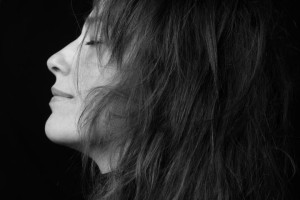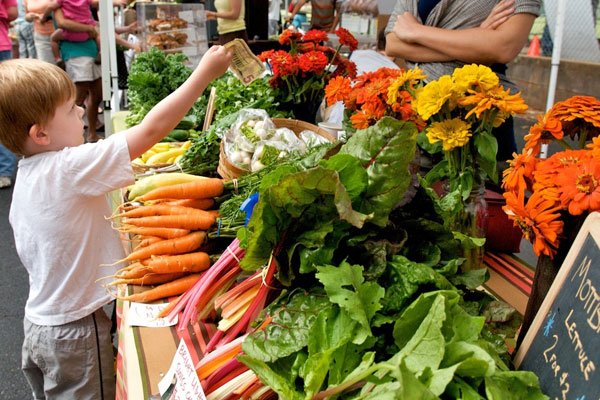Szandra and Jeff met a few months ago in Budapest when she shared her research with the Integral European Conference. Szandra is an “ecological economist”, and to create a pathway towards the economy to come she uses a method called backcasting. With backcasting the researchers begin with a vision of what they want to exist in say, fifty years, and then they work backwards to see what would have to happen to create it.
Szandra conducted her research using two groups of test subjects: one older and steeped in modern values, and a younger group with postmodern sensibilities. The big surprise was how similar the results were between them, as if the vision was there to be discovered regardless of one’s current values.
“With regards to the future,” Szandra says, “the information is there, it’s available to us, to know where we should be going.”
Both groups agreed on several central premises: 1) that the definition of work would be expanded to include self development and taking care of the larger community, 2) that economies would become more local but with a global awareness, and 3) that the difference between non-profits and for-profits would narrow, with each taking cues from the other.
They also saw that education and politics are too intertwined with our economy to keep separate, and that these must be fully integrated in the vision of a future economy.
We hope you enjoy the conversation. Here are the main topics that Szandra and Jeff explore (with time codes):
01:25 WHAT IS BACKCASTING?
Backcasting is a powerful tool used in future studies. Instead of forecasting, which begins in the current, existing mindset (presumably the one that created the problem), backcasting begins in the future with a vision of what could be and works backwards to see what would be necessary to achieve it. The technique is often used in transition management and especially for sustainability issues.
09:21 THE REDEFINITION OF WORK
The modern mindset sees work as a necessary utility to earn money to consume. Economists think of it this way too. But what if the idea of work was expanded to include self-development, taking care of a loved one, or doing good for the larger community? Any of these things may or may not be monetized, which brings up the issue of a guaranteed basic income.
24:21 GLOBALIZATION AND LOCALIZATION, OR GLOCALIZATION
In the vision of a future economy the motto is to think globally and act locally. Eco-localization refers to local production and consumption imbued with an awareness of how one’s actions may impact other communities. This includes global trade between local economies (hence the word “glocalization”), which means you don’t import things that can be made locally but you may still share culture and “perhaps even have bananas in Hungary,” Szandra says.
32:26 CORPORATE AND POLITICAL GOVERNANCE
The study participants saw the for-profit and non-profit sectors merge ideologically. For-profit corporations will not just consider profit but also their social obligations, while non-profits will become more efficient and responsive to the market. Hence the “social economy” will be a new synthesis. Jeff offers the example of the electric car company Tesla who recently released their patents to the world.
42:06 A DIFFERENT KIND OF DEMOCRACY
The two groups involved in Szandra’s study both included the role of politics in the new economy, specifically the idea that the decisions should be made by the stakeholders most directly affected by the policies. This begs the question: should deliberative democracy replace the representative model?
“The idea of representative democracy is beginning to fade away. People have the urge to participate in decision making and to say that the responsibility should lie where the decision lies, and the decision should be where the responsibility is.” – Szandra Köves
47:54 CHANGES IN EDUCATION
We can’t transform work without transforming education. An alternative pedagogy with a focus on the personal capabilities of students is necessary in this new economy, so that our children can discover what they’re good at and how to develop their own special gifts.
 Alexandra Köves graduated from Heriot-Watt University, Edinburgh with an MA in International Business and the Diplomatic Academy of Vienna with an MPhil in International Studies. She has been working with social development for 15 years. Currently she is a doctoral candidate at the Corvinus University doing research on sustainable employment in the field of ecological economics. She also works as a freelance consultant on development policy and employment policy issues both in Hungary and internationally.
Alexandra Köves graduated from Heriot-Watt University, Edinburgh with an MA in International Business and the Diplomatic Academy of Vienna with an MPhil in International Studies. She has been working with social development for 15 years. Currently she is a doctoral candidate at the Corvinus University doing research on sustainable employment in the field of ecological economics. She also works as a freelance consultant on development policy and employment policy issues both in Hungary and internationally.
Podcast: Download
Subscribe: Google Podcasts | RSS






